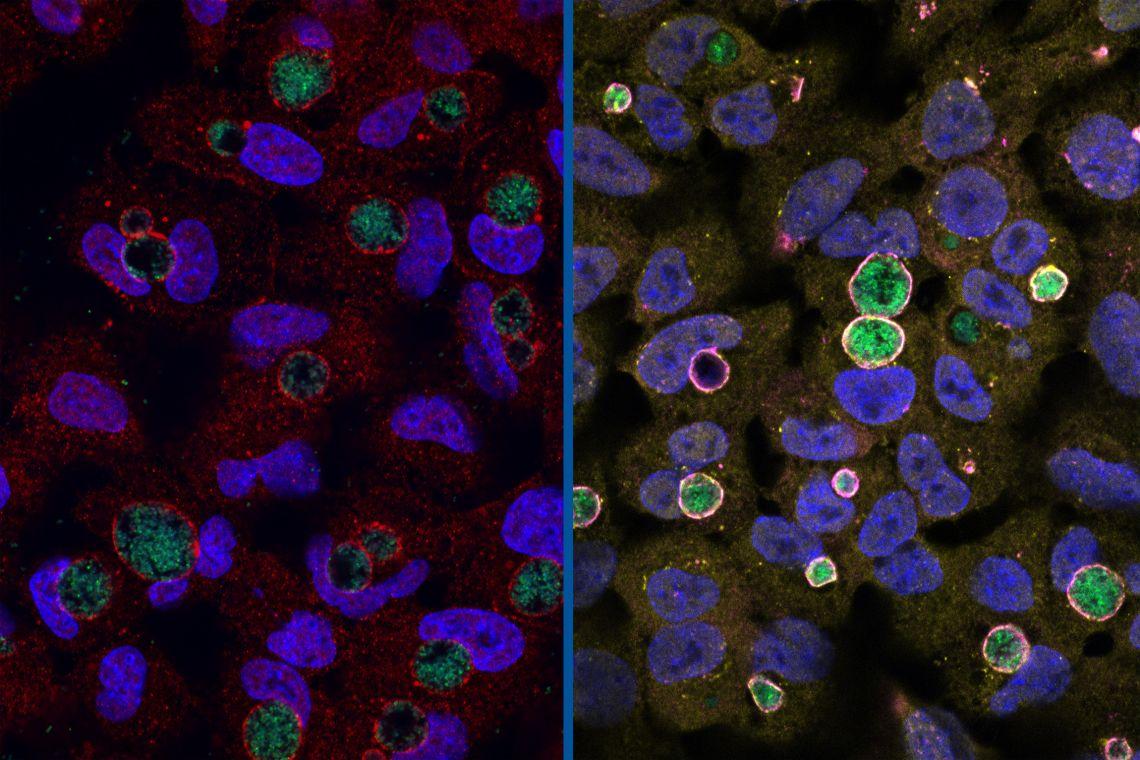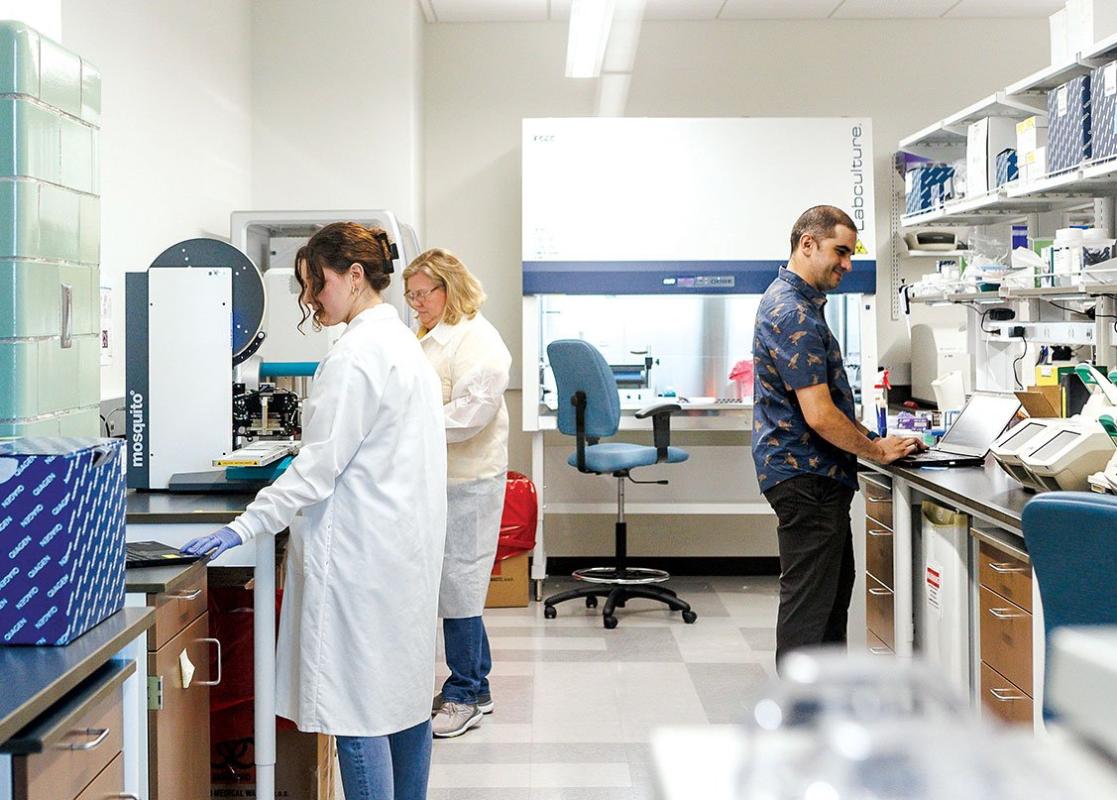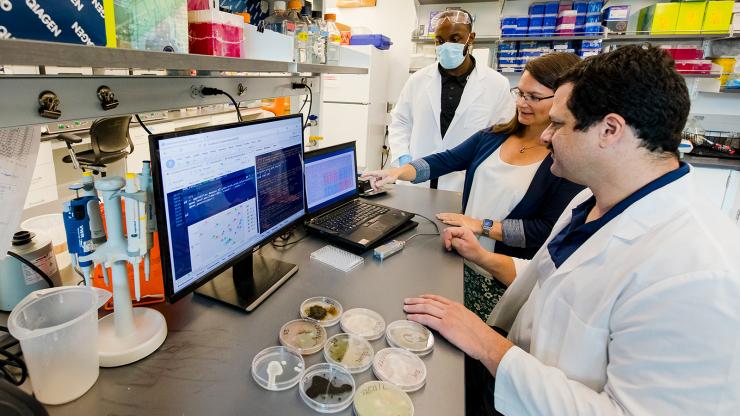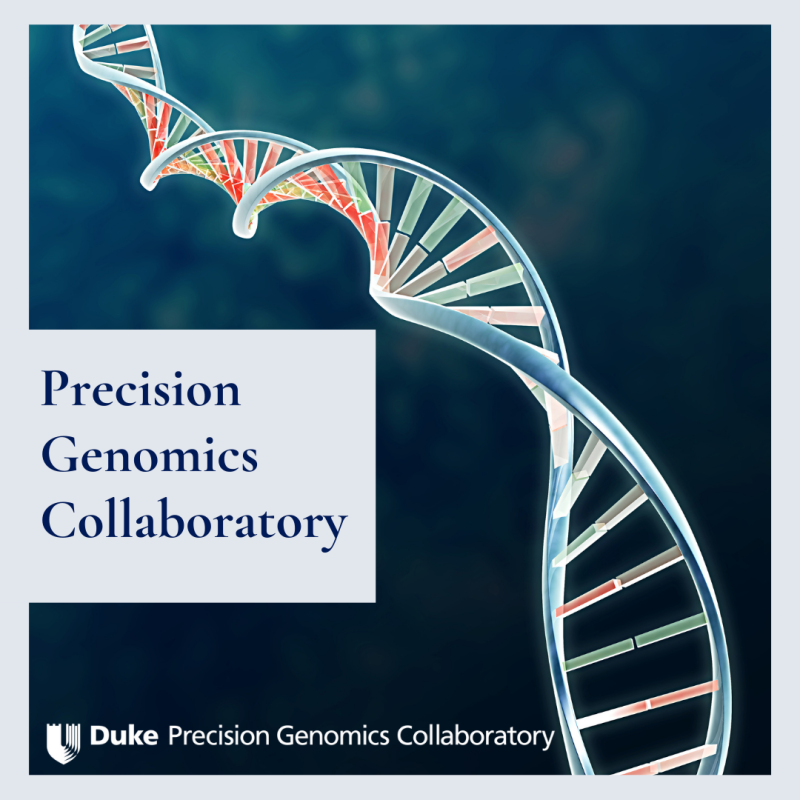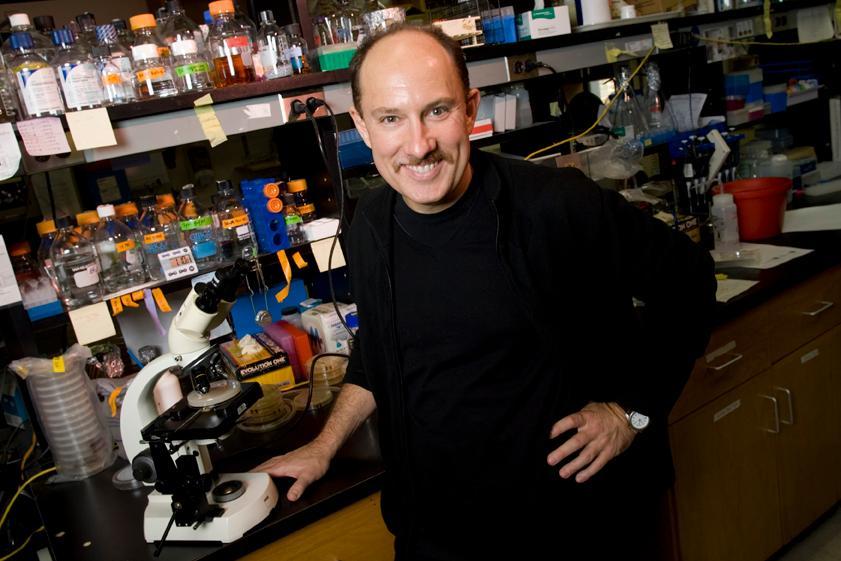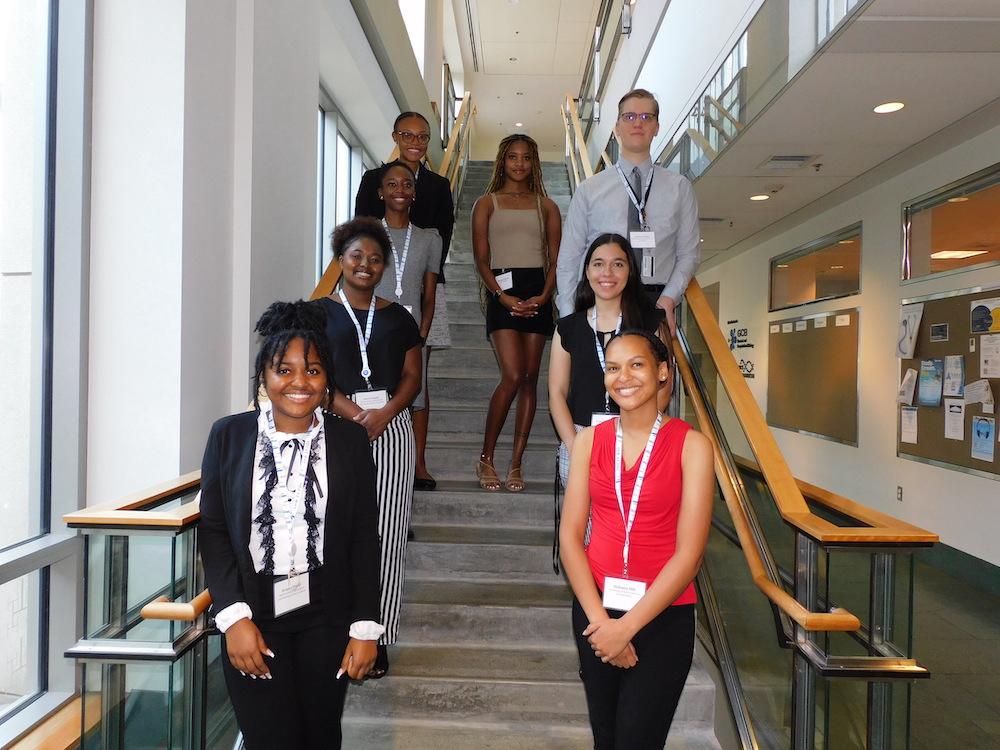Beaman Wins Best Platform Presentation at David W. Smith Workshop
Makenzie Beaman, a pediatric scientist in training in the Medical Science Training Program (MSTP), was selected for the best fellow platform presentation award at the 43rd Annual David W. Smith Workshop on Malformations and Morphogenesis on August 23.
Out of the 64 fellows and medical genetics residents and fellows in the workshop, 13 were selected to give platform presentations. Beaman and one other were selected as the co-best presentation.
Chlamydia's Stealthy Cloaking Device Identified
Microbial proteins around a sexually transmitted infection allow pathogen to hide undetected inside host cells
Microbial Job Stability
How functions in microbial communities remain constant despite varying compositions
Inside the Massive Genome Sequencing Operation Guiding Duke's COVID Response
How a group of genome sequencing research scientists at Duke steered the university's COVID-19 response.
Duke-led Center Seeks to Examine and Engineer the Microbial Communities of Indoor Spaces
New $26 million center will work to understand and engineer the microbiomes in our homes, workspaces and other built environments
Students research shines with help from pilot grants
The Duke School of Medicine Precision Genomics Collaboratory and the Office of Biomedical and Graduate Education have been providing $2,000 pilot grant opportunities three times a year for current biomedical PhD students since August 2021.
After receiving their grants, students have six months to use their funds, which could go towards research or professional development.
Jumping genes drive drug resistance of a world-wide fungal pathogen
Drug-resistant microbial pathogens — whether parasite, bacteria, virus, or fungus — are a major global challenge that can lead to limited treatment options, increased costs for resources, and higher levels of morbidity and mortality.
A Duke-led international research team has discovered one of the ways that drug resistance can develop: a process by which mobile DNA sequences called transposons trigger “hypermutation,” allowing certain genetic components to multiply unchecked.
Summer Scholars leave Duke with a once-in-a-lifetime research experience
This summer, eight scholars from across the country were paired with a faculty research mentor to learn laboratory skills, designing a research project, and effectively presenting future research.
It Doesn't Matter Much Which Fiber You Choose -- Just Get More Fiber
The human gut evolved to thrive on fermentable fibers, not bacon cheeseburgers

